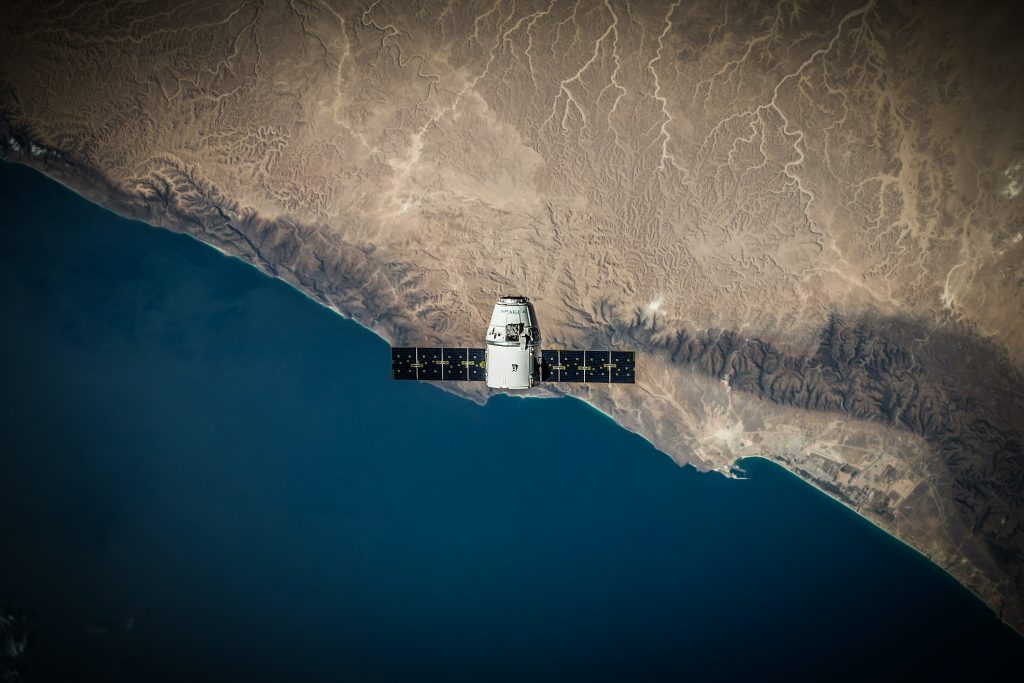Imagine a world plunged into darkness, not by an earthly catastrophe but by the silent demise of our orbital sentinels. Satellites, those guardians of modern communication, navigation, and surveillance, silently drift above us, connecting the world in an intricate web of technology. Yet, what if this network suddenly vanished? What if, by some twist of fate, all satellite communications failed or were obliterated?

With the popularity of movies like “Leave The World Behind” that highlight cyber attacks and downed internet and grid scenarios, in this article, we’ll explore the harrowing scenario of a total collapse of satellite communications. We’ll delve into the immense repercussions on global economies, everyday life, and critical sectors, backed by data and statistics from reputable sources. Join us in uncovering the potential apocalyptic aftermath if these orbital lifelines were severed.
The Backbone of Global Connectivity
Satellites orbiting the Earth act as the backbone of our modern, interconnected world. According to the Union of Concerned Scientists, as of 2022, there were over 3,372 satellites orbiting our planet, facilitating crucial functions such as GPS navigation, weather forecasting, internet connectivity, and telecommunications.
Economic Chaos:
A report by the Satellite Industry Association estimates that the satellite industry generates over $277 billion in revenue annually. An abrupt cessation of satellite services would devastate global economies. Financial markets heavily rely on real-time communication and data transmission via satellites. The loss of this infrastructure would disrupt stock exchanges, international trade, and banking systems, potentially triggering economic recessions and widespread financial instability.
Navigational Nightmare:
Navigation systems, like GPS, have become ingrained in our daily lives. Without satellite signals, transportation systems—airlines, maritime vessels, and even everyday commuters—would be severely impaired. A study conducted by the Royal Academy of Engineering emphasizes that the sudden absence of GPS could lead to transportation gridlock, increased accidents, and logistical nightmares, impacting both commercial and personal travel.

Impact on Emergency Services and Security:
Emergency services heavily rely on satellite communications for rapid response and coordination. Disruption of these vital links could hamper disaster relief efforts, endangering lives during natural disasters or crises. Additionally, national security systems and military operations worldwide depend on satellite technology for surveillance, communication, and intelligence gathering. A failure in this domain could compromise defense capabilities, leaving nations vulnerable to potential threats.
Environmental Monitoring and Scientific Research:
Satellites play a pivotal role in environmental monitoring and scientific research. From tracking climate patterns to observing changes in the Earth’s surface, these tools provide essential data for understanding and addressing environmental challenges. The loss of these capabilities would hinder disaster prediction, impede scientific advancements, and hinder our ability to address global issues.
The potential fallout from the failure or destruction of satellite communications is daunting. It extends beyond mere inconvenience to potentially catastrophic consequences across numerous facets of our interconnected world. The statistics and analyses presented in this article underscore the critical importance of safeguarding our orbital infrastructure against such cataclysmic scenarios.
As we marvel at the wonders of space technology, let us also acknowledge its fragility and the immense responsibility to protect and preserve these systems that underpin our modern civilization.
Sources:
- Union of Concerned Scientists: “UCS Satellite Database”
- Satellite Industry Association: “State of the Satellite Industry Report”
- Royal Academy of Engineering: “Global Navigation Space Systems: Reliance and Vulnerabilities”
- Various scholarly papers, industry reports, and reputable news sources.
The world without satellites is not a hypothetical scenario to be taken lightly. It’s a stark reminder of the pivotal role these artificial celestial objects play in our daily lives, urging us to safeguard them and ensure a robust and resilient space infrastructure for generations to come.

How to Prepare Now
Surviving a disaster involving the failure or destruction of satellite communications would require adapting to a world suddenly cut off from vital technological infrastructure. While challenging, several strategies might enhance one’s chances of navigating such a scenario:
Emergency Preparedness:
Create an emergency kit with essential supplies such as non-perishable food, water, first aid supplies, and necessary medications. Equip yourself with tools for basic survival, like flashlights, batteries, a manual can opener, and a portable radio to stay updated on local news.
Navigation Alternatives:
Learn traditional navigation methods like using a compass, reading maps, and identifying landmarks. Additionally, consider investing in alternative GPS systems that function independently of satellites, such as inertial navigation systems or old-fashioned paper maps.
Communication Strategies:
Establish alternative communication methods with loved ones and emergency services. This might include designated meeting points, setting up a neighborhood communication network, or utilizing radio communication devices that don’t rely on satellites.
Self-Reliance and Skills Development:
Cultivate self-sufficiency skills like gardening, basic medical training, and resource management. Acquiring skills such as foraging, water purification, and basic repair and maintenance can be invaluable in a technology-disrupted world.
Community Building and Collaboration:
Foster a sense of community and collaboration within your neighborhood or local area. Forming alliances and working together can help share resources, knowledge, and support during times of crisis.
Preserving Knowledge and Documentation:
Maintain hard copies of essential information like medical records, personal identification documents, and important contact numbers. Preserve critical knowledge and expertise within communities to ensure survival without relying solely on digital resources.
Adaptation and Flexibility:
Embrace adaptability and flexibility in adjusting to a world without satellite technology. This might involve finding creative solutions to everyday challenges, adapting to changes in transportation, and embracing manual methods for various tasks.
Long-Term Sustainability:
Focus on long-term sustainability by exploring renewable energy sources, learning about local food sources, and understanding how to minimize waste and conserve resources.
Remember, the goal during such a crisis is not just individual survival but also fostering resilience and cooperation within communities. The ability to adapt, collaborate, and innovate in the face of adversity becomes crucial for navigating a world stripped of satellite communications.
